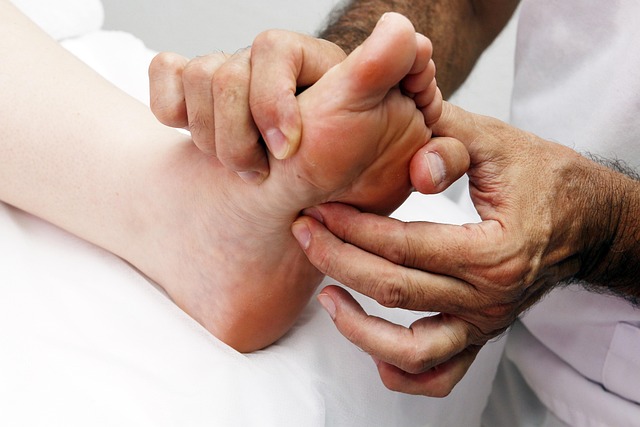Group support programs are vital for facilitating recovery, especially in managing chronic pain. These sessions offer a safe space for individuals to share experiences, learn from peers, and gain coping mechanisms. Through dynamic idea exchange, participants build community, enhance social skills, and improve self-esteem, all crucial aspects of healing. Peer-led strategies create a powerful support system, encouraging active care involvement and fostering a sense of belonging. Effective group interventions, designed with engaging environments in mind, incorporate evidence-based pain management techniques like CBT. Tailoring these programs to specific needs, such as mindfulness for chronic pain, ensures relevance and enhances long-term recovery success by fostering resilience and tailored coping strategies.
“Group programs offer a powerful support system during the recovery journey, especially when incorporating peer-led pain management strategies. This comprehensive article explores the benefits of collaborative care in overcoming challenges associated with pain and addiction. We delve into effective group intervention designs, emphasizing the importance of community for long-term success. By understanding these programs, individuals can access valuable resources and navigate their path to recovery with strength and resilience.”
- Understanding Group Support Programs for Recovery
- Benefits of Peer-Led Pain Management Strategies
- Designing Effective Group Interventions
- Resources and Community Building for Long-Term Success
Understanding Group Support Programs for Recovery

Group support programs play a pivotal role in facilitating recovery by offering individuals a safe and supportive environment to navigate their journey. These programs provide an opportunity for people facing similar challenges to connect, share experiences, and learn from one another. In the context of pain management strategies, group therapy sessions can be incredibly effective. Participants gain insights into coping mechanisms, discover new ways to manage pain, and build resilience through collective understanding and empathy.
The dynamic nature of group support allows for a unique exchange of ideas and perspectives, fostering a sense of community. Members learn that they are not alone in their struggles, which can alleviate feelings of isolation often associated with chronic pain or addiction recovery. By participating in open discussions and activities, individuals develop social skills, enhance self-esteem, and cultivate a network of peers who offer encouragement and accountability throughout the healing process.
Benefits of Peer-Led Pain Management Strategies

Peer-led pain management strategies offer a unique and powerful approach to recovery, fostering a sense of community and shared understanding among participants. Individuals facing similar challenges can connect, support one another, and draw strength from their collective experience. This peer-to-peer dynamic encourages active involvement in one’s care, empowering individuals to take control of their recovery journey.
These strategies have proven effective in enhancing coping mechanisms, reducing reliance on medications, and improving overall quality of life. By participating in group discussions and learning from peers, individuals can develop new skills to manage pain, gain insights into different coping techniques, and discover sustainable strategies for long-term wellness. This supportive environment promotes a sense of belonging and can significantly contribute to the success of the recovery process.
Designing Effective Group Interventions

Effective group interventions for recovery should be meticulously designed, focusing on engaging and supportive environments that facilitate open communication. These programs aim to empower individuals navigating various challenges, including chronic pain, by offering a sense of community and shared experiences. Incorporating evidence-based pain management strategies into group sessions is pivotal. Facilitators can employ techniques such as cognitive-behavioral therapy (CBT) to help participants challenge negative thoughts and develop coping mechanisms. Group discussions, interactive exercises, and skill-building workshops enable members to learn from one another’s journeys, fostering a supportive atmosphere that encourages resilience.
Tailoring these interventions to specific populations or conditions ensures relevance and effectiveness. For instance, groups focused on chronic pain management can include activities like mindfulness meditation, relaxation techniques, and stress management strategies. By combining these elements with peer support, individuals gain valuable tools for self-care and emotional well-being during their recovery journey.
Resources and Community Building for Long-Term Success

Group programs offer a unique and powerful opportunity for individuals in recovery to access essential resources and build a supportive community, both key factors for long-term success. These programs facilitate connections among peers with shared experiences, creating a sense of belonging and understanding that can be invaluable during what is often an isolating journey. Through group discussions, members gain insights into various pain management strategies, learn from one another’s experiences, and develop coping mechanisms tailored to their unique needs.
The community aspect extends beyond the group sessions, as participants often form lasting bonds, providing a network of support both within and outside the program. This sense of belonging encourages continued engagement in recovery practices and fosters resilience against potential setbacks. By combining access to evidence-based pain management strategies with a strong social support system, these programs enhance the overall effectiveness of the recovery process.
Group support programs play a pivotal role in enhancing recovery journeys, offering a network of peers who understand the challenges of managing pain. By incorporating peer-led pain management strategies, these programs provide a powerful tool for individuals seeking long-term well-being. Effective group interventions, coupled with access to resources and community building, can significantly improve outcomes, ensuring that those in recovery feel supported and empowered throughout their journey.
